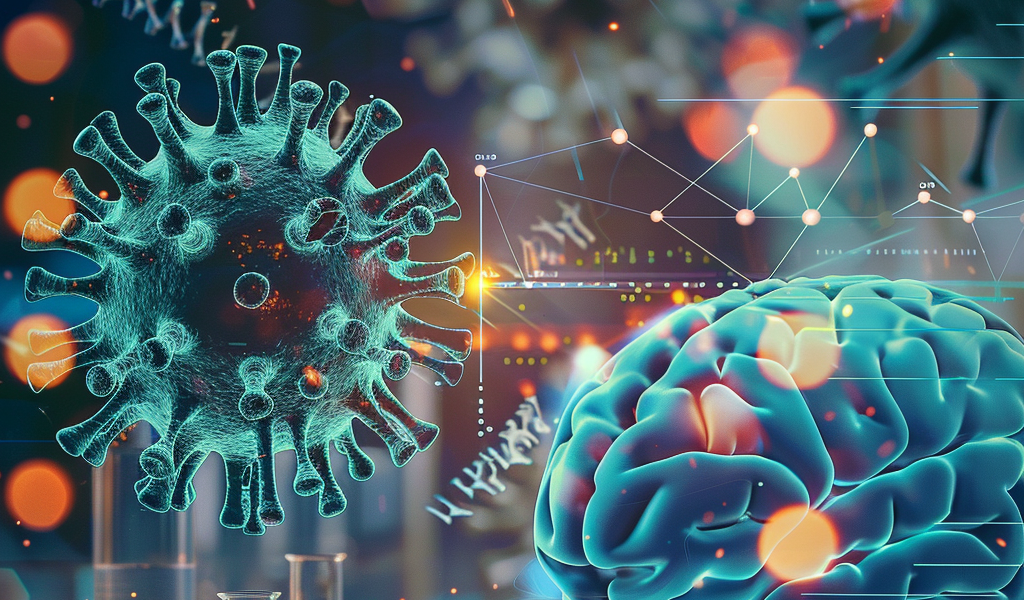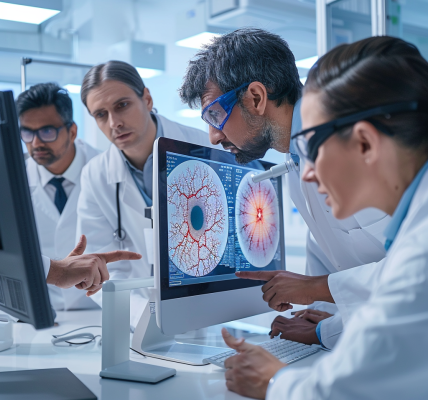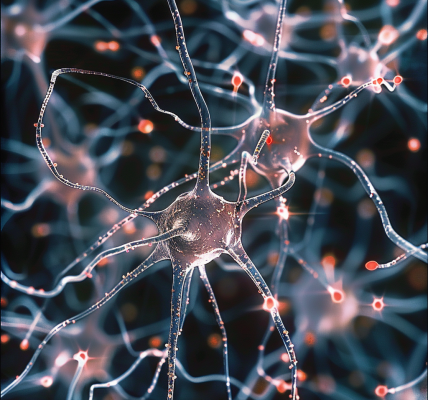Recent research has unveiled a significant mutation in the SARS-CoV-2 virus, which is responsible for causing COVID-19, that enhances its capacity to infect the central nervous system. This groundbreaking study, published in the esteemed journal Nature Microbiology, sheds light on the neurological symptoms associated with the virus and offers insights into the persistent condition known as long COVID. The findings could pave the way for targeted treatments aimed at safeguarding the brain from viral infection.
The collaborative effort between researchers from Northwestern University and the University of Illinois-Chicago has revealed a series of mutations in the spike protein of SARS-CoV-2. The spike protein is a crucial component of the virus, facilitating its entry into host cells. According to Dr. Judd Hultquist, an assistant professor in the Division of Infectious Diseases and Microbiology-Immunology at Northwestern University Feinberg School of Medicine, these mutations significantly enhance the virus’s ability to infect the brains of laboratory mice.
“By comparing the genomes of viruses isolated from the brain with those from the lung, we discovered that viruses exhibiting a specific deletion in the spike protein were far more proficient at infecting the brain,” said Dr. Hultquist, who served as the co-corresponding author of the study. This unexpected finding is particularly exciting as it opens new avenues for understanding how SARS-CoV-2 interacts with different tissues in the body.
The research involved infecting mice with SARS-CoV-2 and subsequently sequencing the genomes of the viruses that proliferated in the brain versus those in the lungs. The analysis revealed that while the spike protein in the lung viruses remained largely unchanged, the viral variants in the brain exhibited notable deletions or mutations in a critical region responsible for the virus’s cellular entry.
Dr. Hultquist elaborated, “For the virus to migrate from the lung to the brain, it necessitated alterations in the spike protein, which are already recognized to influence how the virus penetrates various cell types.” This discovery highlights the crucial role that specific regions of the spike protein play in determining whether the virus can access the brain, suggesting that these mutations could have significant implications for the treatment and management of neurological symptoms experienced by COVID-19 patients.
SARS-CoV-2 has been linked to an array of neurological symptoms, including the loss of smell and taste, cognitive impairments often referred to as “brain fog,” and the long-term effects termed long COVID. Despite extensive research, the exact mechanisms behind long COVID remain elusive. It is still under investigation whether these symptoms arise from direct viral infection of brain cells or through other pathways.
As scientists continue to unravel the complexities of SARS-CoV-2 and its interactions with the human body, this study marks a pivotal step in understanding how the virus can affect the brain. The identification of mutations that enhance the virus’s ability to infect neural tissue could lead to the development of novel therapeutic strategies aimed at mitigating the neurological impact of COVID-19.
Ongoing research is essential to further elucidate the relationship between SARS-CoV-2 and its neurological effects. The implications of these findings extend beyond immediate clinical applications; they also contribute to the broader understanding of viral pathogenesis and the host’s immune response.
As the pandemic evolves, the scientific community remains committed to exploring the intricacies of SARS-CoV-2. The collaboration between institutions like Northwestern University and the University of Illinois-Chicago exemplifies the importance of interdisciplinary research in addressing complex health challenges posed by the virus.
In summary, the discovery of spike protein mutations that facilitate SARS-CoV-2’s entry into the brain represents a significant advancement in our understanding of the virus’s neurological effects. This research not only aids in comprehending the mechanisms behind symptoms like brain fog and long COVID but also holds promise for the development of targeted interventions to protect the brain from viral infections.





